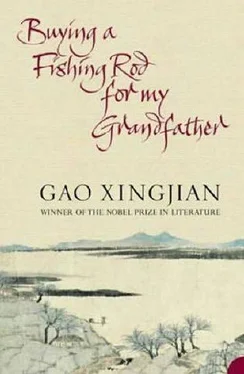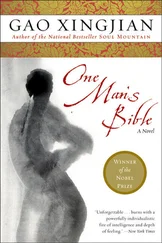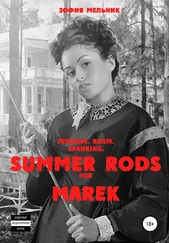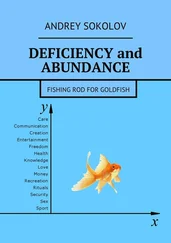1 ...7 8 9 11 12 13 ...20 I remember that every day on my way to school I had to pass a stone bridge, and the lake was right next to it. Even when there was no wind, there were waves lapping all the time, and I used to think they were the backs of swimming fish. I never imagined that the fish would all die, that the sparkling lake would turn into a foul pond, that the foul pond would then be filled in, and that I would not be able to find the way to my old home.
I ask where Nanhu Road is. But people look at you with surprise, as if they can't understand what you are saying. I still speak the village dialect, and anyone who does will always have a village accent. In our village, the word for grandfather is laoye . However, the word for "I," "me," aerial to show there's a television in the house. A house without an aerial stands out and is regarded as defective. And of course everyone watches the same programs. From 7:00 to 7:30 it's the national news, from 7:30 to 8:00 the international, then short TV films, commercials, weather forecasts, sports, more commercials, then variety shows, and from 10:00 to 11:00 old movies. The movies aren't aired every day: on Mondays, Wednesdays, and Fridays, it's TV series instead. On the weekends, programs on cultural life are shown through the night. Anyway, the aerials are magnificent. It's as if the rooftops had grown small forests but a cold wind came and blew off all the leaves so that only bare branches remain. You are lost in these barren forests and can't find your old home.
I remember that every day on my way to school I had to pass a stone bridge, and the lake was right next to it. Even when there was no wind, there were waves lapping all the time, and I used to think they were the backs of swimming fish. I never imagined that the fish would all die, that the sparkling lake would turn into a foul pond, that the foul pond would then be filled in, and that I would not be able to find the way to my old home.
I ask where Nanhu Road is. But people look at you with surprise, as if they can't understand what you are saying. I still speak the village dialect, and anyone who does will always have a village accent. In our village, the word for grandfather is laoye . However, the word for "I," "me," or "my" is wo , produced between the back palate and the throat, and sounds like e, which means "goose." So wo laoye to a non-local sounds like "goose grandfather." And "goose" asking for directions using the back palate and throat fails to kindle any of that village friendliness in people. When I stop two young women and ask them, they just laugh. "Goose" doesn't understand why they're laughing. They laugh so hard, they can't answer, and their faces look like two pieces of red cloth. Their faces aren't red because they, too, are wearing bras, but because when I say " Nanhu Road," I also say nan between the back palate and throat, and it sounds funny to them. Later, I find an older man and ask him where the lake used to be. If I know where the lake was, it will be easy to find the stone bridge, and when I find the stone bridge, it will be easy to find Nanhu Road, and when I find Nanhu Road, I'll be able to feel the way to my old home.
The lake? Which lake? The lake that was filled in. Oh, that lake, the lake that was filled in is right here. He points with his foot. This used to be the lake. So we're standing on the bottom. Was there once a stone bridge nearby? Can't you see that there are asphalt roads everywhere? The stone bridges were all demolished and the new ones use reinforced concrete. You understand. You understand that what used to be no longer exists. It is futile to ask about a street and street number that used to exist, you will have to rely on your memory.
My childhood home had an elegant, old-style courtyard. The gate screen had a relief mural inlaid with carved stone images depicting Good Fortune, Prosperity, Longevity, and Happiness. Old Man Longevity, who had half of his head missing, held a dragon-head staff. The dragon's head had worn away, but we children were absolutely sure that Old Man Longevity's staff was in the shape of a dragon's head. The gate screen also had a spotted deer carved in it. The spots, of course, were those faint indentations on the deer's back. Whenever we went in or out we always touched the antlers, so they became very shiny. The courtyard had two entrances, one in front and one in the back. The bankrupt owner of the house lived in the back courtyard. There was a little girl in that family called Zaowa. She used to stare at me wide-eyed; it was funny but somehow sweet.
That courtyard definitely existed, as did the date trees growing there that my grandfather had planted. And the cages hanging in the eaves held my grandfather's birds in them. He kept a thrush there and even a mynah. My mother complained about the mynah being noisy, so my grandfather sold it and brought home a red-faced tit. But the tit died soon afterward; these birds are temperamental and shouldn't be caged. When my grandfather said that it was the tit's red face that made him fall in love with it, my grandmother scolded him for being shameless. I remember all this. The courtyard was No. 10 Nanhu Road. Even if they'd changed the name of the road and the number, they wouldn't have filled in this perfectly good courtyard, as they had that pond of foul water. But I ask everywhere and search street after street and lane after lane. I feel as if I'm rummaging through my pockets; I've taken out everything, but still can't find what I want. In despair I drag along my weary legs, uncertain whether they still belong to me.
Suddenly I have a brainstorm and remember Guandi Temple. It was in the opposite direction from the way I went to school, in the direction of the movie theater. When my mother took me to see a film we had to pass a lane called Guandi Temple. If I can find Guandi Temple, it won't be hard to work out the location of my home. So I start asking people how to find Guandi Temple.
Oh, so you're looking for Guandi Temple? What number? This confirms that Guandi Temple still exists. The person I encounter is so earnest and keen to help that he asks for the house number. Unable to think of a number right away, I mumble that I was wondering if the address still existed. If there's an address, of course it exists. Who are you looking for? What family do you want? He wants more details. Probably he thinks I'm back from overseas searching for my roots, or that I'm some drifter who abandoned his village. I explain that my family used to rent the house, and that it didn't belong to my grandfather. What was the name of the landlord? All I know is that the landlord had a daughter called Zaowa, but I can't tell him that. As I continue mumbling, a scowl appears on the man's face and his eyes turn cold. He looks me up and down as if he's considering whether to report me to the police.
If you're looking for No. 1, go straight, then take the first lane on the right, it's on the south side of the road. If you're looking for No. 37, go that way, after about a hundred paces take the second lane, go to the very end, and it's on the north side, on the left. I thank him repeatedly, but when I go, I can feel his eyes boring into my back.
I see the first lane on the right, but before turning I see the brand-new blue road sign beside the red sign of the men's public lavatory. Written on it clearly and unmistakably is Guandi Temple, but this is not the impression I had of it as a child. I turn into the lane to show that I really did come to see my old home and am not up to any mischief. There is no need for me to look from No. 1 to No. 37. At a glance I can see to the end of the lane: it is not as long and winding as I remembered. I don't know whether or not a temple was there then. No tall buildings are on either side of the lane; rising above the old-style buildings is only one three-story redbrick building, an economy structure that seems less permanent than these old courtyards. Suddenly I remember that Guandi Temple burned down after being struck by lightning, but that was before I was capable of remembering anything. My grandfather told me about it. He said that the spot attracted lightning because the qi energies underground were in disharmony, so they built the temple to drive away the demons and evil spirits. Still it ended up being struck by lightning, proving that the site was not suited to human habitation. Anyway, my home was not in Guandi Temple, it was somewhere not too far from it. I must retrace the way my mother took me when I was a child. Having a child myself won't make it any easier, but I know that it's futile to keep asking people. I have gone in circles on the lake, beyond the lake, in the middle of the lake, around the lake, but if the sea can turn into mulberry trees, so too can this little lake. I suspect that my old home is hidden deep in the little forest of aerials in that stretch of old buildings, new buildings, and economy buildings that are neither old nor new, right in front of me. But no matter how much you keep going around them you can't see it. So you can only imagine it from your memories. It might be beyond that wall, converted to family dormitories by some urban environmental-protection authority. Or a plastic button factory might have turned it into a warehouse with iron doors and a guard, so unless you can state your business, don't even think about going in to nose around. Just tell yourself that people couldn't be so cruel as to demolish the gate screen with the carvings. But past and present sages and philosophers in China and the West believe that humans have a propensity for evil, and that evil is more deeply rooted than good in human nature. You like to believe in the goodness of people. People just wouldn't be so mean as to so they built the temple to drive away the demons and evil spirits. Still it ended up being struck by lightning, proving that the site was not suited to human habitation. Anyway, my home was not in Guandi Temple, it was somewhere not too far from it. I must retrace the way my mother took me when I was a child. Having a child myself won't make it any easier, but I know that it's futile to keep asking people. I have gone in circles on the lake, beyond the lake, in the middle of the lake, around the lake, but if the sea can turn into mulberry trees, so too can this little lake. I suspect that my old home is hidden deep in the little forest of aerials in that stretch of old buildings, new buildings, and economy buildings that are neither old nor new, right in front of me. But no matter how much you keep going around them you can't see it. So you can only imagine it from your memories. It might be beyond that wall, converted to family dormitories by some urban environmental-protection authority. Or a plastic button factory might have turned it into a warehouse with iron doors and a guard, so unless you can state your business, don't even think about going in to nose around. Just tell yourself that people couldn't be so cruel as to demolish the gate screen with the carvings. But past and present sages and philosophers in China and the West believe that humans have a propensity for evil, and that evil is more deeply rooted than good in human nature. You like to believe in the goodness of people. People just wouldn't be so mean as to deliberately trample the memories of your childhood, because they too have a childhood worth remembering. This is as clear as one plus one cannot equal three. One plus one may change in quantity and substance, change into something grotesque, but it will never become three. To abolish such thoughts you must get away from these asphalt roads that all look alike, and away from these new buildings and old buildings, these blocks upon blocks upon blocks of half-new, half-old economy apartment blocks, under their forests of television aerials, bare branches devoid of leaves, as far as the eye can see.
Читать дальше
Конец ознакомительного отрывка
Купить книгу












